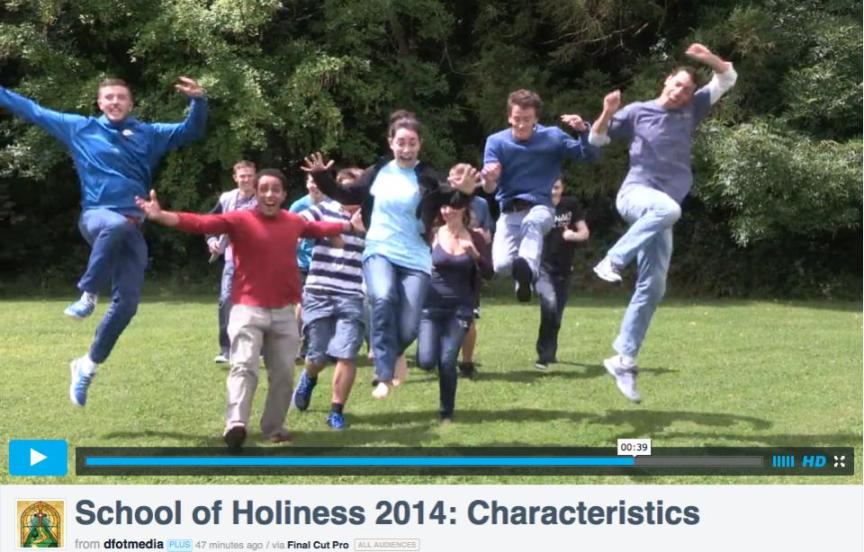July 3rd, 2014 SOH Day 3 (Activity)
To start off our class period, we had an activity. Everyone made a sign that said, “I am imperfect.” This was to show how we can be liberated by the awareness of our imperfection. Only God can be perfect. It is an unreachable goal and we know that while we will not achieve the perfection of God, we do strive to be like Him.
The next thing we talked about was finding the right person and if we want to find the right person, we must become the right person. As a class, we made a list of qualities that we would like our potential spouses to have. At the end of the exercise, we had to ask ourselves if we possessed those same traits. Some of the qualities included trustworthy, honest, non-judgemental, conversational, humorous, joyful, patient and kind.
The second part of our class today was Maggie speaking on brain basics, part two. We explored, in more depth, the roles of the limbic system and the neo-cortex. The anterior cingulate is the part of the brain known as the inner negotiator; it negotiates between the limbic system and the neo-cortex and its function can be compromised by stress or trauma. Staying in the limbic system for long periods can lead to negative patterns in thinking and behaving. It is extremely difficult to know God while in the limbic mind-set. Maggie’s talk was interspersed with catechism quotes given by Fr. Darragh relating to the morality of the passions. In the limbic system, it is hard to moderately express desires without overexpressing or under-expressing them. This can lead to aggression, passive aggression, and anger, all of which can have serious consequences in relationships. While acting and thinking out of the neo-cortex, the passions can be governed with the intellect and will. This allows for healthy navigation of relationships. Reinforcement of negative beliefs or thoughts will lead to negative choices or actions, which lead to negative results or outcomes. This reinforces the original negative belief or thought, meaning, this can become of cycle. We need to strive for self-awareness and positivity.
The last part of class, Fr. Darragh spoke more about the passions, using the catechism as the learning tool. He spoke to us about diminished culpability. Culpability depends on three factors: how free we are in the action, the seriousness of the matter, and how much we understand what we are doing as right or wrong. The two basic emotions are love and fear and all the rest stem from these two. The catechism says that emotions are a natural component of the human psyche. Love is an attraction and a desire for goodness.

No comments:
Post a Comment